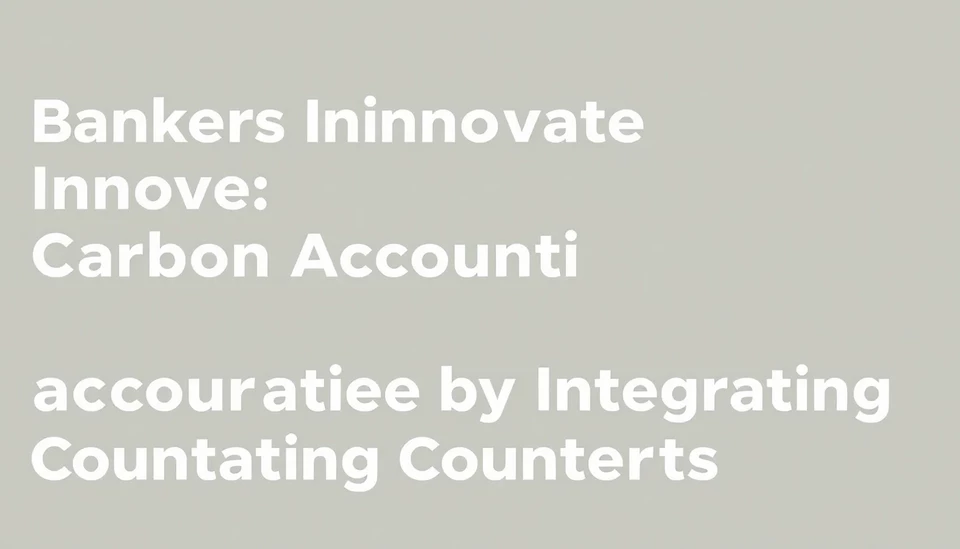
In a groundbreaking development within the finance sector, bankers have announced a significant shift in how they approach carbon accounting. Starting soon, financial institutions will incorporate counterfactual scenarios into their methods of measuring and reporting carbon emissions. This innovative approach aims to provide a more comprehensive understanding of the environmental impact of various business operations.
Traditionally, carbon accounting has primarily relied on actual emissions data derived from historical operational activities. However, the introduction of counterfactuals — hypothetical scenarios that consider what would have happened if different decisions had been made — allows bankers to paint a more nuanced picture of carbon footprints. This method can help organizations assess the potential environmental benefits of alternative choices, offering insights into sustainable business practices.
The shift came in response to growing pressures from regulators and stakeholders demanding more transparency and accountability concerning sustainability efforts. As climate change increasingly dominates global discourse, financial entities are seeking more credible ways to evaluate their contributions to greenhouse gas emissions and the overall climate crisis.
By including counterfactual assessments, banks aim to pinpoint the effectiveness of their sustainability initiatives. This could lead not only to improved reporting practices but also to enhanced decision-making processes regarding investments in renewable energy and other eco-friendly ventures.
Financial experts anticipate that this updated methodology will also contribute to better risk assessment strategies for banks and their clients. By understanding the potential implications of different operational choices on carbon emissions, businesses can develop more effective mitigation strategies to manage environmental risks.
The move has to be lauded as a step forward in the banking industry's evolving role in environmental stewardship. As part of a broader trend toward responsible finance, this focus on counterfactuals can potentially reshape how financial decisions are made in relation to sustainability outcomes.
As prominent banking institutions gear up to adopt these advanced practices, it remains to be seen how widespread the integration of counterfactuals will be and what impacts it will have on overall emission reporting standards across the banking sector.
#CarbonAccounting #SustainableFinance #ClimateChange #BankingInnovation #EnvironmentalStewardship
Author: Daniel Foster




